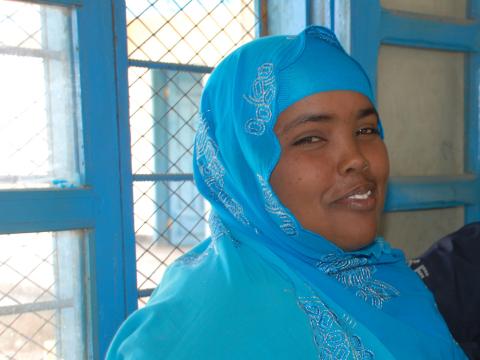Humanitarian work is empowering

Nimco Nura Eid works for World Vision Somalia as a Gender Officer, and was profiled as part of the UN's Humanitarian Heroes.
What does Humanitarianism mean to you in one word? Empowerment.
Why did you become a humanitarian worker or volunteer?
My motivation to become a humanitarian worker was my strong desire to help women with fistula problems and FGM complications. I find joy in supporting and encouraging women who have lost hope and remind them that their lives can be restored to normal.
What's the most rewarding part of your work?
Seeing women’s dignity restored to fullness after a fistula surgery is my delight.
What are some of the more challenging aspects of your work?
Being a heavily patriarchal society, I have had to deal with people who look down on me because of my gender. When I started working on the fistula projects, I was side lined by male members of the community. This is because in most cases, women do not rise to leadership roles. To complicate matters, topics such as fistula and gender based violence are considered taboo and hardly discussed in public.
Tell us a little bit about the work you do.
I am equipped with knowledge in gender & development concepts, gender analysis frameworks & tools, equality and empowerment. Previously, I handled child protection issues as well as peace building activities. Apart from facilitating treatment for women suffering from fistula, I engage in mobilizing communities to act against Gender Based Violence (GBV) and address gender issues affecting members of their community.
What is the most memorable moment you’ve experienced during your work?
One day, when I saw a young, divorced mother aged just 17 walk out of the fistula hospital after treatment, I was filled with joy. I knew that her young son aged 4 would have a better life since her mother was in a better position to care for him, and her extended family.